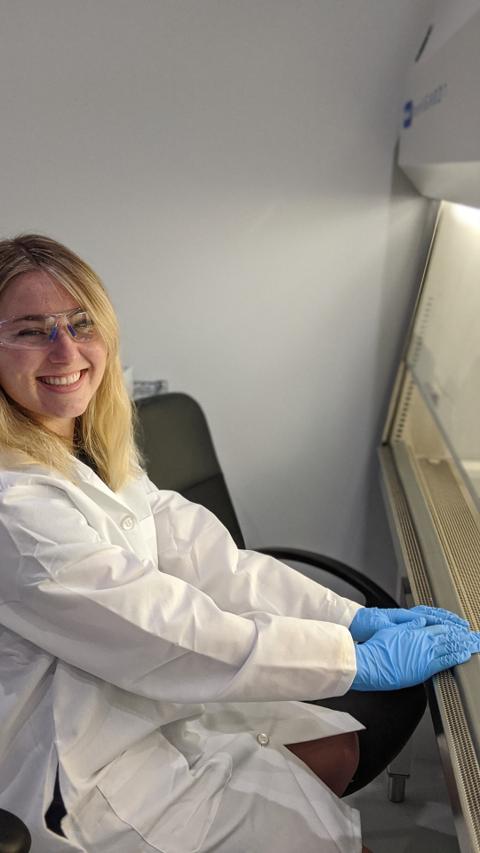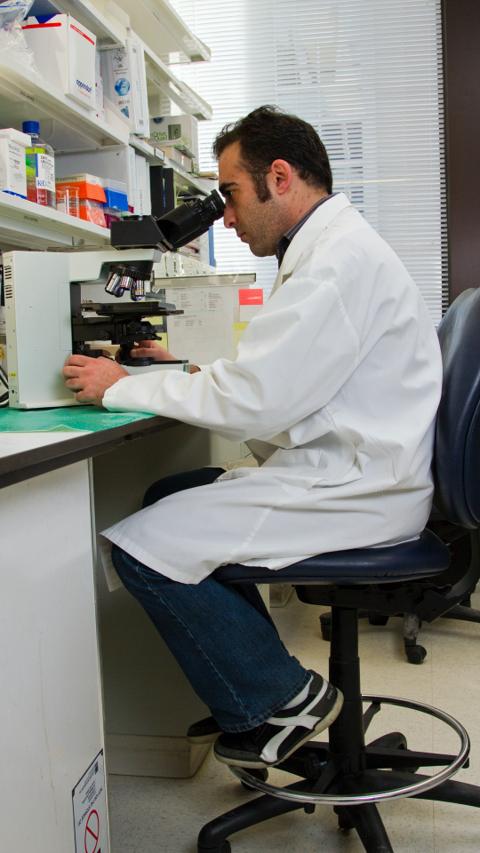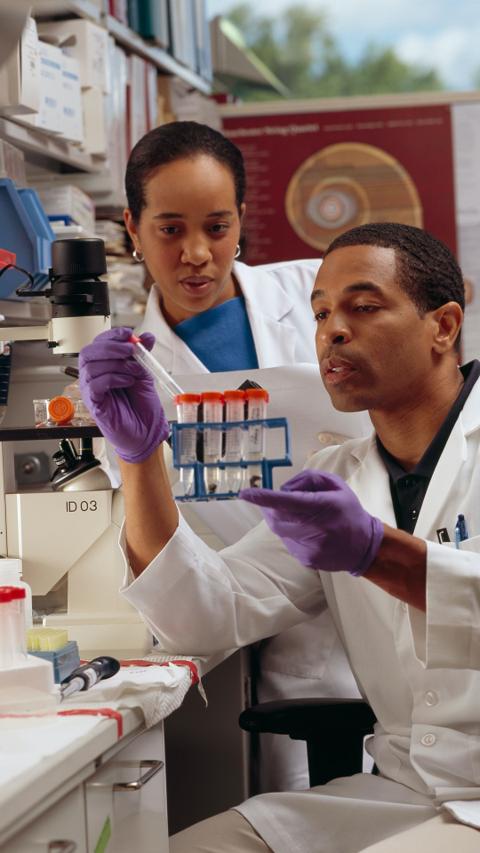PLASMIA is a biotechnology company dedicated to researching new, more efficient forms of synthesis for a family of molecules, nucleoside analogues, which are used as drugs in the antiviral and antitumor fields.
The technology, patented by PLASMIA, is based on the use of enzymes extracted from Extremophilic bacteria that catalyze the reactions that allow the synthesis of nucleoside analogues in a single step, thereby obtaining greater speed and efficiency in the processes, at the same time which results in less waste generation. The result is a very important reduction in production costs.
PLASMIA technology accelerate the discovery process of new drugs based on nucleoside analogues for the antiviral and oncological fields.
Everything you need to advance your research, all in one place.
Plasmia is a biotechnology company dedicated to researching new, more efficient forms of synthesis of antiretroviral and antitumor products. Plasmia's technology is based on the discovery of certain Extremophile enzymes that catalyze reactions that allow the synthesis of antiretrovirals and antitumor drugs in a single process.

first objective of PLASMIA is the application of its technology to improve the production processes of already known nucleoside analogues.
Secured
Explain how this feature benefits your research in simple terms.
All-in-one biotech solutions
Clear communication – we believe in providing transparent and easy-to-understand information to our patients and partners.
User-friendly interfaces
Discover how this feature can accelerate your research in just a few words.
Useful Options
Stunning visualizations of your data
State-of-the-art laboratory facilities
Revolutionary scientific breakthroughs

Our Mission
Nucleosides are the pieces that make up our DNA and their sequence defines all the characteristics and functions of our body.
With the intention of mimicking these molecules, nucleoside analogues have been developed that constitute a family of drugs used in antitumor and antiviral treatments. Currently, 70% of this type of molecules is intended for the treatment of AIDS.
Nucleoside analogues are chemically modified nucleosides that, once incorporated into the DNA chain, inhibit the activity of the enzymes responsible for the replication of genetic material. Its pharmaceutical action lies in this blocking of DNA replication, as shown in the animation. Thus, as antitumor agents, they prevent the increase in the number of cancer cells and, as antiviral agents, they prevent the multiplication of viral particles.
The current production of nucleoside analogues by chemical means requires multiple synthesis steps that make this procedure a very complicated and expensive process. PlasmiaBiotech has developed a technology that allows the synthesis of these molecules by chemoenzymatic means that simplify the current production process. production, its costs and the amount of waste generated.
Our technological platform is made up of a battery of enzymes obtained by transgenesis from Extremophilic bacteria, capable of working at high temperatures. These enzymes act as biocatalysts and allow nucleoside analogues to be synthesized in a single step and with a higher degree of purity.

PHASE I
The first generation of enzymes obtained allows us to produce nucleoside analogues such as Brivudine (herpes treatment), Cladribine (leukemia treatment), Decitabine (myelodysplastic syndrome treatment) or a precursor of AZT (AIDS treatment) more simple.

PHASE II
We are currently working on the development of a second generation of enzymes that allows us to synthesize nucleoside analogues with a more complex structure in a single synthesis step without the need for complementary chemical processes. Some of the compounds that are intended to be produced with this second battery of enzymes are Clofarabine (treatment of childhood leukemia) or Gemcitabine (treatment of lung, pancreatic, bladder and breast cancer).